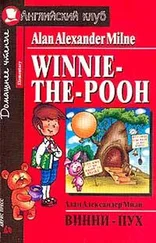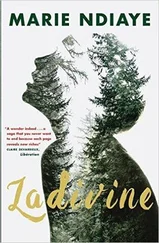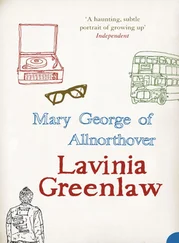“How can you say such a thing? That I said. . My poor Zaka.”
“You told me. I remember it clearly.”
Vador shrugged and took back the old couple’s picture, which Zaka, unaware, was about to drop onto the carpet. With a pious, loving attention that Zaka found all the more disturbing because it seemed to her wholly sincere, she leaned the photo against one of the framed pictures, the one that showed Claude François running through a glorious meadow with his two sons.
What envy, and even what jealousy, Zaka suddenly recalled, that picture had injected into their fervent, devoted little-girl emotions, the day they cut it out and glued it to a piece of cardboard! For they were exactly the right age to be Claude François’s children, the two daughters he might have had, one of them beautiful and one ugly. Then they began to imagine they really were Claude François’s daughters — had they not gone so far as to glue their own faces over those of the two boys who had unjustly supplanted them in that sublime role?
Hoping to patch things up, she was about to ask Marlène if she remembered being Claude François’s pretty older daughter, when something in the curve of Marlène’s back as she bent over her, Zaka’s, parents (long dead, shoved aside with hostility and derision) suddenly revealed to her how much kinder Marlène Vador was than she — how incomparably better, how incontestably more compassionate than she herself had ever been. All at once her eyes filled with tears.
“I can’t do what you’re asking,” said Zaka.
“I’ll manage,” said Marlène.
“I would so much have liked for us to see each other again.”
Vador smiled, regretful, resolute, infinitely sad. She stood there in her polished, dowdy little living room, her face as if pierced in two places by the gleam of her immortal eyes, her arms limp at her sides, and Zaka knew that this woman was no longer her friend. And for all her exemplary kindliness, this woman who was no longer her friend would never be moved by anything that might happen to Zaka. It was all over, it had all come to an end, long before Zaka could have imagined.
Zaka stepped forward and quickly hugged Marlène Vador, who was, in a way, no longer Marlène Vador.
Who was it that had cried out, with a furious, desperate, bewildered sob: “It’s all over, we’ll never meet him!”?
Maybe Zaka’s mother, maybe Vador’s. Not Marlène, certainly not, her eyes half closed onto the comforting, mysterious certainty that she would indeed meet him one day, that nothing was ever over as long as you weren’t dead yourself.
* * *
Doctor Zaka bustled back and forth in front of the apartment building, calling:
“Paula! Paula!”
She ran through the puddles, ungainly. She was fat and graceless, and no imaginary sheath or metal casing could protect her now. She was ashamed to have played at thinking herself light and hard when she was so ponderous, so broad. And now her daughter Paula was nowhere to be seen, and it was her fault. And the back of her head was throbbing. And how could she not remember the shocked shout that had burst from Vador’s lips as Zaka bolted out of the room, alarmed that Paula hadn’t come up:
“You can’t leave a child alone around here anymore!”
Oh, Marlène Vador would never see the little girl who had Marlène Vador’s face — for that too, it was too late. And what was Marlène Vador’s face now, since that woman was no longer a friend, since nothing mattered to her anymore but not exceeding Claude François’ lifespan?
Now Zaka’s cheeks were bathed in tears. She trundled along, unsure which way to turn. The flesh jiggled on her hips and her arms.
“Paula! Paula!”
Her glasses slipped off her nose. At the same instant, Zaka made an awkward leap from the street to the sidewalk. She heard the lenses shatter underfoot, and she would have liked to make a similar noise, the stinging expression of her despair and her terror.
Trembling, she picked up the glasses.
“Oh God, oh God.”
She stuffed the mangled frames into her pocket and tried to look around, squinting. Suddenly, among the tall, rundown towers — so like the one that Marlène still lived in, that Zaka herself had once lived in, when those buildings took the luminous, white, well-tended form of their childhood — she thought she spotted Paula’s small fuchsia figure. She believed she could make out another vague shape beside her, and she warily started forward again, panting loudly, unsure if she should call out. Another wave of pain drilled into her head, and as she winced, pulling back her upper lip, the figure at Paula’s side turned away. Zaka thought she recognized the child’s father. And although a bitter substance immediately filled her mouth, she was ashamed to have pretended to see Paula’s father as a huge, flabby man, cowardly and deceitful. She realized she could keep that ruse up no longer. She wanted to spit at his back — but how not to see, despite her nearsightedness, that he had the proudly erect back of a fine and upstanding man? That man had stopped loving her long before: long, long before. Would he love her again if, one hand very visibly pressed to her bandage, she shrieked:
“What are you doing here? I’ll see you in court!”
And she, Zaka, would she stop loving him, in spite of it all? What did she have to do, she wondered, her head spinning, to turn regret and nostalgia into indifference?
She stopped and stood, exhausted. She felt her entire body shivering with desire and resentment, aimed at that man who was no longer hers, who had lost all regard for her.
Just then the man walked away with a long, relaxed stride. Now Zaka was not at all sure that he was Paula’s father.
And now Paula herself, or the silhouette that might have been hers, took off as well, in the other direction. The cold shadow of a building swallowed her up.
* * *
Doctor Zaka happened onto her daughter at the bus stop.
“Mama! I was waiting for you,” said Paula, joyously.
And then, seeing her daughter’s eyes shining with an enthusiasm and a gaiety she’d never seen before, Zaka was embarrassed by her own naked face, glistening with despair.
She forced herself to smile, held back the words of reproach and relief.
She did her best to prepare herself: any revelation would have to be greeted with benevolence. ingy words?
When a woman who called herself E. Blaye showed up at the neighbors’ farm, the neighbors — the four Mours — were still eating their lunch.
René watched them eat. From the dark kitchen corner, he looked on as the father’s and mother’s and two Mour boys’ little violet mouths primly, ruefully opened to admit the pieces of eggplant their relentless forks were thrusting inside, leaving only the handles visible between the wary, unwilling, pried-open lips of the Mours and their two boys, who all glanced up together to look at the woman. Sometimes René slid over on his chair and bent his head to one side to watch the Mours’ legs moving gently beneath the table, their long legs, their dainty feet in identical blue espadrilles. The Mours’ eight lower limbs undulated dreamily, and all the while, up above, a battle was being waged between the stubborn mouths and the forks plunging into those mouths’ most secret depths.
The Mours’ four gray gazes landed as one on the visitor.
René straightened up in his seat, although no one was looking his way. It was for that very reason, he knew, because no one felt obliged to pay him any mind, that they let him stay in the kitchen at lunchtime. René was hungry, but they never offered him their leftovers. He sensed that, had one of the Mours cared enough to invite him to share, he would lose his right to stay in that dark corner, nearly every day, swaying in his seat as he watched the little plum-colored mouths straining to fight off the food. Surprised and impatient, they would have said:
Читать дальше












